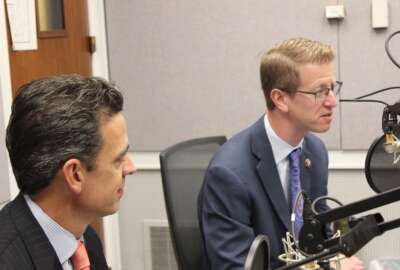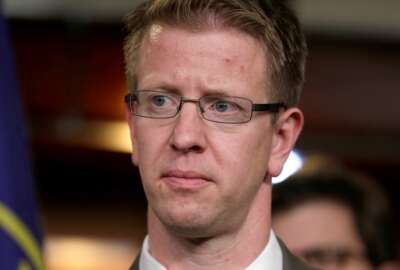
As House seeks to modernize, reskilling, HR strategies take shape
Agencies clamor to reskill their employees for the jobs of the future under various IT modernization strategies.
As agencies clamor to reskill their employees for the jobs of the future and develop more user-friendly online services under several modernization strategies, members of the House Modernization Committee are seeking many of those same transformative goals on Capitol Hill.
“Folks who have been here a long time might expect things to stay the same, but I know as folks come in from the outside, they have expectations of what technologies they’re going to be able to use,” Rep. Suzan Delbene (D-Wash.) said at Thursday’s hearing.
With each incoming class of freshman members, the House’s Chief Administrative Office anticipates younger members to request more current technology in their offices. But the 116th Congress freshman class stood out as the second-largest in history.
As a result, Chief Administrative Officer Philip Kiko said his office has fielded a growing number of requests for more modern office accommodations, like video conferencing capabilities.
“That’s a conversation I’ve had with a lot of members, ways to get new technology on the Hill for members to use faster, because they’re using it before when they come in,” Kiko said.
Related Stories

Freshman congressman: Axing Office of Tech Assessment made us ‘dumber as a nation’
In the initial rollout of the strategic plan, Kiko said his office flagged professional development gaps for congressional staff as an area where more effort is needed. That led CAO to launch the Congressional Staff Academy, which offers staff courses on appropriations law, committee clerk procedures, specialized writing skills and more.
As part of the academy’s coursework, CAO has rolled out a nine-part leadership seminar, developed in collaboration with the Partnership for Public Service and the Marine Corps University, which has attracted interest from chiefs of staff, staff directors and district directors. All of the CAO academy’s resources are available to staff in member, committee, leadership, and support offices.
But despite these technical support offerings, Richard Shapiro, former executive director of the Congressional Management Foundation, said the House still falls short on some essential human resource functions.
“If a chief of staff or a member has a management problem, there’s really no office they can sit down and confidentially talk to somebody and say, ‘Can I air out my concerns, and get some guidance and advice?’” Shapiro said.
Congressional offices, he added, lack resources to support diversity hiring.
“If I’m looking to recruit, for example, minority candidates and I’m a freshman, how do I recruit people? What’s the best practices? An HR office can provide these kinds of services and a wealth of other services,” Shapiro said. “Lacking that information, lacking that one-stop shop, congressional offices have to do it themselves and they often wind up not doing it at all.”
House support offices also face the challenge of notifying the offices of 435 representatives and five non-voting delegates their programs.
CAO, for example, offers about 130 different services to congressional offices – everything from payroll services to IT infrastructure — but has truncated those services into about 30 services. But in order to make congressional office staff aware of the services, CAO has “advocates” circulating among 30 to 40 offices apiece, and have begun to fan out to field offices across the country.
“They’re supposed to be the point of contact if there’s a problem,” Kiko said.
But some member of Congress, not satisfied with the level of service offered by CAO, have turned to private IT contractors to address those services. Kiko said sometimes that means vendors need to coordinate with CAO to ensure compliance with congressional cybersecurity standards.
But sometimes his office faces a “difficult issue” balancing the latest technologies with cybersecurity standards.
“That’s a little bit of a difficult problem, just to be able to use everything that you want to use, but we do look at new technologies if a member asks us to, or vendors,” he said.
Copyright © 2024 Federal News Network. All rights reserved. This website is not intended for users located within the European Economic Area.
Jory Heckman is a reporter at Federal News Network covering U.S. Postal Service, IRS, big data and technology issues.
Follow @jheckmanWFED




